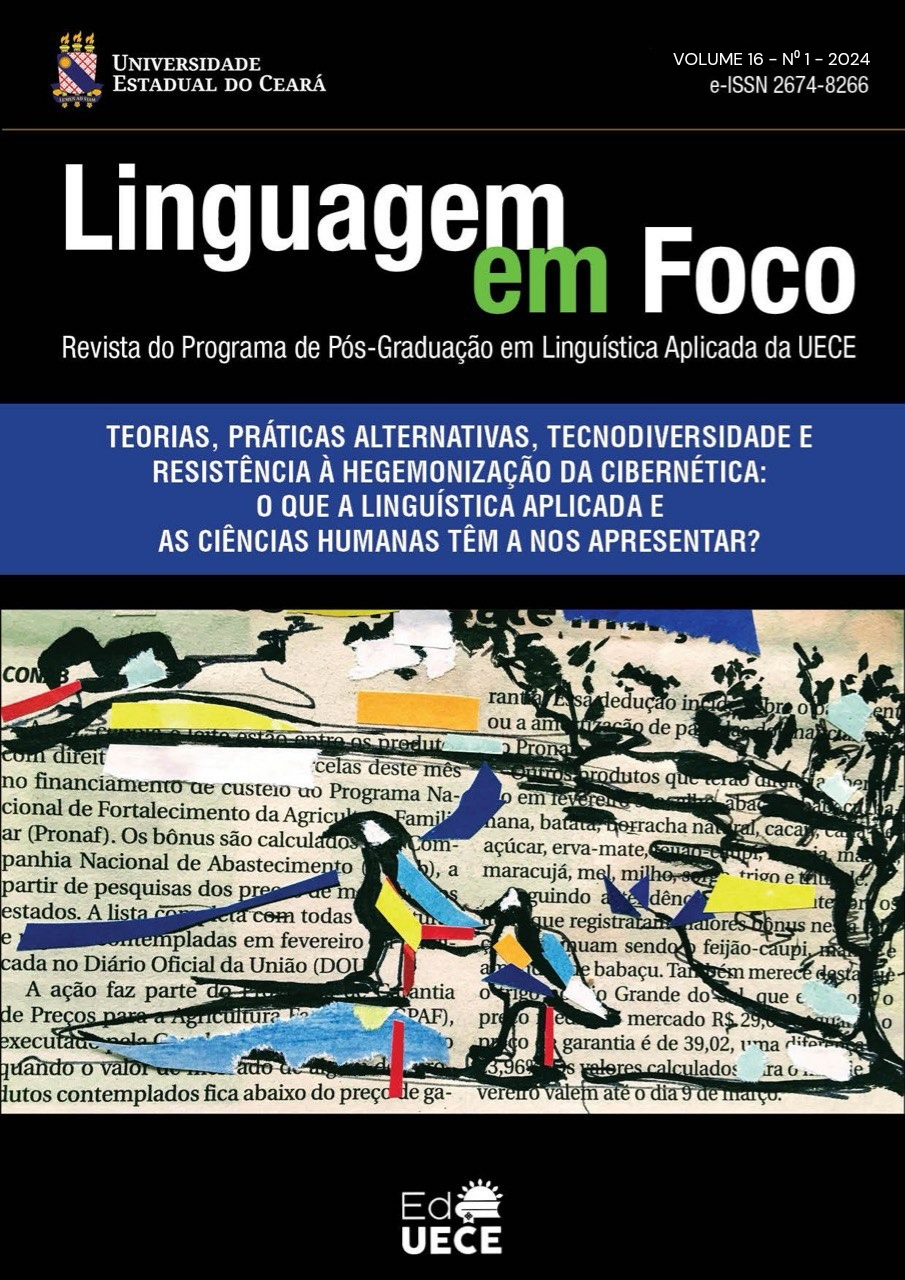"Frankenstein" and Technology
a reading of Mary Shelley's novel as a critique of modern science
DOI:
https://doi.org/10.46230/2674-8266-15-11537Keywords:
science fiction, Frankenstein, science criticism, technodiversityAbstract
When philosopher Yuk Hui (2020a) introduced the concept of technodiversity into discussions about technology, he paved the way for understanding this term and others surrounding it – such as the idea of progress – as always “situated”, meaning they are the products of our worldviews, intertwined with the material, social, historical, and political conditions of knowledge production. This study aims to contribute to this discussion through an analysis of Mary Shelley's “Frankenstein” as an exercise in critique of Western modern science, considering that the novel emerges precisely when this ideal of science was solidifying in the 19th century. The novel, by revealing fundamental tensions between the desire for knowledge and its consequences, challenges the alliances between science and similarly situated ideals of progress and nature, questioning the traditional view of science as something separate from humanity and, thus, separate from the Humanities. Shelley’s book provides significant reflections on the construction of epistemologies that integrate science and humanities as equally products of the cultures in which they are situated; both sciences and humanities are, therefore, equally rooted in their specific socio-historical-political contexts. Thus, as we examine the pages of “Frankenstein,” we are invited to reflect on the implications of our ways of knowing and inhabiting the world. This makes literature in general and science fiction in particular powerful tools for thinking about the sciences, humanities or not, and their technologies.
Downloads
References
CRACIUN, A. Writing the Disaster: Franklin and Frankenstein. Nineteenth-Century Literature, v. 65, n. 4, p. 433–480, 2011. https://doi.org/10.1525/ncl.2011.65.4.433. Acceso em: 26 fev, 2024.
FRASER, N.; JAEGGI, R. Capitalismo em debate: uma conversa na teoria crítica. São Paulo: Boitempo, 2020.
GUSTON, D. H.; FINN, E.; ROBERT, J. S. Editor’s preface. In: SHELLEY, M. W.; GUSTON, D. H.; FINN, E. ROBERT, J. S. Frankenstein: or, the modern Prometheus: annotated for scientists, engineers, and creators of all kinds. Cambridge, MA: The MIT Press, 2017. Disponivel em: https://direct.mit.edu/books/oa-monograph/3542/FrankensteinAnnotated-for-Scientists-Engineers-and. Acesso em: 26 fev, 2024. p. XI-XVIII.
HARAWAY, D. Situated Knowledges: The Science Question in Feminism and the Privilege of Partial Perspective. Feminist Studies, v. 14, n. 3, p. 575–599, 1988.
HUI, Y. Tecnodiversidade. São Paulo: Ubu editora. 2020a.
HUI, Y. For a Planetary Thinking. e-flux Journal, Brooklyn, n, 114. Dez, 2020b. Disponível em: https://www.e-flux.com/journal/114/366703/for-a-planetary-thinking/. Acesso em: 07 fev, 2023.
LE GUIN, U. K.; YI, P.; HARAWAY, D. J. The carrier bag theory of fiction. London: Ignota, 2019.
LEVINE, G. Dying to know: scientific epistemology and narrative in Victorian England. Chicago: University of Chicago Press, 2002.
LONGINO, H.; HADDAD, Y. L.; ARBO, J. B.; SOARES, M. H. Filosofia da ciência e epistemologias feministas: entrevista com Helen Longino. Em Construção, n. 10, p. 331-340, 2021. Disponível em: https://www.e-publicacoes.uerj.br/index.php/emconstrucao/article/view/62842. Acesso em: 30 jul. 2023.
LONGINO, H. Values, heuristics and the politics of knowledge. Scientiae Studia, v. 15, n. 1, p. 39–57, 2017. Disponível em: https://www.revistas.usp.br/ss/article/view/133642. Acesso em: 30 set. 2023.
LONGINO, H. E. The fate of knowledge. Princeton, N.J: Princeton University Press, 2002.
MARIUTTI, E. B. Tecnodiversidade, cosmotécnica e cosmopolítica: notas sobre o pensamento de Yuk Hui. Lugar Comum – Estudos de mídia, cultura e democracia, n. 62, p. 146–159, 2022. Disponível em: https://revistas.ufrj.br/index.php/lc/article/view/49578. Acesso em: 27 jan. 2024.
MARX, W. The hatred of literature. Cambridge, Massachusetts: The Belknap Press of Harvard University Press, 2018.
ROBINSON, C. E. Introduction. In: SHELLEY, M. W.; GUSTON, D. H.; FINN, E.; ROBERT, J. S. Frankenstein: or, the modern Prometheus: annotated for scientists, engineers, and creators of all kinds. Cambridge, MA: The MIT Press, 2017. Disponivel em: https://direct.mit.edu/books/oa-monograph/3542/FrankensteinAnnotated-for-Scientists-Engineers-and. Acesso em: 26 fev, 2024, p. XXIII - XXXV.
SHELLEY, M. Frankenstein ou o Prometeu moderno. Trad. Christian Schwartz, São Paulo: Penguin Classics Companhia das Letras, 2015.
SNOW, C. P. The two cultures. Canto ed. London; New York: Cambridge University Press, 1993.
Downloads
Published
How to Cite
Issue
Section
License
Copyright (c) 2024 Jade Bueno Arbo, Eduardo Marks de Marques

This work is licensed under a Creative Commons Attribution 4.0 International License.
Authors who publish in Linguagem em Foco Scientific Journal agree to the following terms:
- Authors retain the copyright and grant the journal the right of first publication. The articles are simultaneously licensed under the Creative Commons Attribution License which allows sharing the work with an acknowledgement of its authorship and initial publication in this journal.
- The concepts issued in signed articles are the absolute and exclusive responsibility of their authors. Therefore, we request a Statement of Copyright, which must be submitted with the manuscript as a Supplementary Document.
- Authors are authorized to make the version of the text published in Linguagem em Foco Scientific Journal available in institutional repositories or other academic work distribution platforms (ex. ResearchGate, Academia.edu).





























